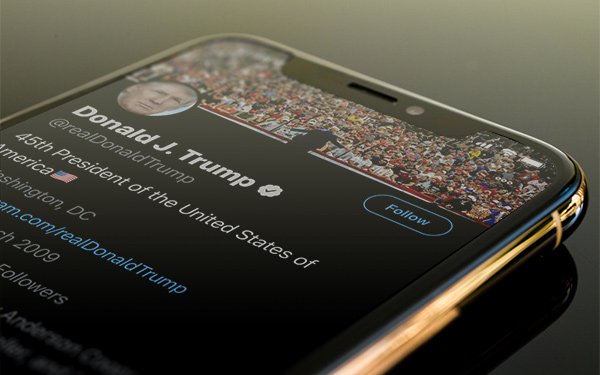
A federal
appellate court should leave in place a recent ruling by three judges who said President Donald Trump violated the First Amendment by blocking critics on Twitter, the Knight Institute at Columbia
University argues.
The judges “correctly held that President Trump and his White House staff operate the @realDonaldTrump account in an official capacity, that their official operation
of the account has established a public forum for expression, and that their blocking of critics from that forum violates the First Amendment's prohibition on viewpoint discrimination,” the
Knight Institute writes in papers filed late last week with the 2nd Circuit Court of Appeals.
The organization is asking the 2nd Circuit to reject the White House's request for a new hearing “en banc,” meaning in front of all or most of the court's 14 judges.
The legal
fight dates to 2017, when the Knight Institute sued Trump on behalf of seven critics who were blocked from the @realDonaldTrump Twitter account. The organization argued that the blocks violated the
critics' free speech rights.
The White House argued the lawsuit should be dismissed for several reasons. Among others, the administration said Trump acts in a “personal” capacity,
as opposed to an official one, when he blocks people on social media.
A three-judge panel of the 2nd Circuit rejected the White House's argument. In a ruling issued in July, they said there
was “overwhelming” evidence of the account's official nature. The judges noted that since becoming president, Trump has used the account almost daily to communicate about his
administration, announce policy changes and foreign policy initiatives.
The Knight Institute argues in its new papers that the court has no reason to reconsider that finding.
“The panel rightly concluded that 'overwhelming' and undisputed factual evidence in the record shows that the @realDonaldTrump account is used as an 'important tool of governance and
executive outreach,'” the organization writes. “Contrary to the government's contention, the case does not warrant rehearing en banc simply because the president is a party, or because the
panel's opinion will guide other courts.”